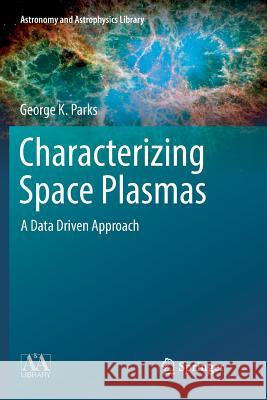Characterizing Space Plasmas: A Data Driven Approach » książka



Characterizing Space Plasmas: A Data Driven Approach
ISBN-13: 9783030079222 / Angielski / Miękka / 2019 / 332 str.
Characterizing Space Plasmas: A Data Driven Approach
ISBN-13: 9783030079222 / Angielski / Miękka / 2019 / 332 str.
(netto: 249,17 VAT: 5%)
Najniższa cena z 30 dni: 250,57
ok. 16-18 dni roboczych.
Darmowa dostawa!
Dr. George Parks is a research physicist in the Space Sciences Laboratory at the University of California, Berkeley. He has previously held numerous other roles, including a professorship in the geophysics group at the University of Washington and a visiting scientist position at NASA. He has over 350 publications in refereed journals on topics such as auroral X-ray observations, plasmas in the radiation belt, plasma sheets, bow shocks, wave-particle interactions, and non-linear plasma physics.
This didactic book uses a data-driven approach to connect measurements made by plasma instruments to the real world. This approach makes full use of the instruments’ capability and examines the data at the most detailed level an experiment can provide. Students using this approach will learn what instruments can measure, and working with real-world data will pave their way to models consistent with these observations.
While conceived as a teaching tool, the book contains a considerable amount of new information. It emphasizes recent results, such as particle measurements made from the Cluster ion experiment, explores the consequences of new discoveries, and evaluates new trends or techniques in the field. At the same time, the author ensures that the physical concepts used to interpret the data are general and widely applicable. The topics included help readers understand basic problems fundamental to space plasma physics. Some are appearing for the first time in a space physics textbook. Others present different perspectives and interpretations of old problems and models that were previously considered incontestable. This book is essential reading for graduate students in space plasma physics, and a useful reference for the broader astrophysics community.
1997-2026 DolnySlask.com Agencja Internetowa
KrainaKsiazek.PL - Księgarnia Internetowa









